Books
We believe that ideas shape the world, and much of our work involves supporting research, writing, and the sharing of books by innovative thinkers offering fresh perspectives on how we understand our world. Below is an annotated list of books authored by past and present Fellows of the Center for Science and Culture. These works cover scientific debates on topics like intelligent design, cosmology, the origin of life, the nature of consciousness, and the evolution of biological complexity. Other books delve into the cultural implications of science or the intersection of science and faith. Notable titles such as Darwin’s Black Box, The Design Inference, Signature in the Cell, and The Privileged Planet have significantly influenced scientific and cultural discussions by introducing new evidence to address critical questions.
Books about Science (including Philosophy of Science)
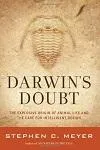
Darwin’s Doubt: The Explosive Origin of Animal Life and the Case for Intelligent Design
By: Stephen C. Meyer | Publisher: Harper One
Stephen C. Meyer’s book, Darwin’s Doubt: The Explosive Origin of Animal Life and the Case for Intelligent Design
(HarperOne, 2013), is widely regarded as one of the most thorough critiques of the neo-Darwinian paradigm. Meyer builds his argument by focusing on the Cambrian explosion, a period in the fossil record when nearly all major animal phyla appeared suddenly, without clear evolutionary precursors. In the opening chapters (1 through 4), Meyer recounts...

Discovering Intelligent Design: A Journey Into the Scientific Evidence
By: Kemper, Gary, Hallie Kemper, Casey Luskin | Publisher: Discovery Institute Press
Discovering Intelligent Design (DID) is the first comprehensive curriculum designed to present the scientific evidence supporting intelligent design across cosmology and biology in an accessible format. This curriculum includes a textbook, a workbook, and a DVD featuring multimedia video clips that complement the readings. Developed by homeschool educators Gary and Hallie Kemper, alongside Discovery Institute Research Coordinator Casey Luskin, Discovering ID occupies a unique niche in the intelligent design literature by providing an integrated and educational approach to this topic.
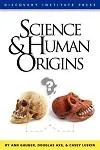
Science and Human Origins
By: Gauger, Ann, Douglas Axe, Casey Luskin | Publisher: Discovery Institute Press
Science & Human Origins, a thought-provoking publication from Discovery Institute Press, takes on some of the most prominent evolutionary arguments regarding the controversial claim that humans and apes share a common ancestry. In this book, three scientists challenge the assertion that undirected natural selection is sufficient to account for the complexity of human beings. The authors critically examine fossil and genetic evidence, offering a detailed analysis of the scientific case for human uniqueness and questioning the adequacy of evolutionary explanations.

The Myth of Junk DNA
By: Wells, Jonathan | Publisher: Discovery Institute Press
The Myth of Junk DNA, authored by biologist and senior Discovery Institute fellow Jonathan Wells, confronts the claim made by many proponents of Darwinian evolution that "junk DNA" — the non-protein-coding portion of the genome, which accounts for over 95% of our DNA — serves as decisive evidence against intelligent design. Critics argue that an intelligent designer would not fill genomes with seemingly useless sequences. Wells exposes this assertion as an anti-scientific myth, presenting compelling evidence that much of what was once dismissed as "junk" actually serves critical regulatory and functional roles. This book challenges conventional evolutionary narratives and underscores the complexity and purposeful design of genetic material.

Intelligent Design Uncensored: An Easy-to-Understand Guide to the Controversy
By: Dembski, William & Jonathan Witt | Publisher: InterVarsity Press
Intelligent Design Uncensored: An Easy-to-Understand Guide to the Controversy stands out as one of the best books for explaining the fundamentals of intelligent design (ID) in straightforward language. With clarity, elegance, and scientific accuracy, it surpasses many others in filling this niche. Co-authored by Dr. William Dembski, a leading expert in the technical arguments for ID, and Dr. Jonathan Witt, a skilled writer with a solid understanding of the science involved, the book is an ideal resource for readers seeking an accessible yet thorough exploration of the ID debate. Both authors, senior fellows at the Discovery Institute, combine their expertise to provide a compelling introduction to the topic.
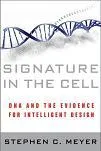
Signature in the Cell: DNA and the Evidence for Intelligent Design
By: Meyer, Stephen C. | Publisher: Harper Collins
In Signature in the Cell: DNA and the Evidence for Intelligent Design, Dr. Stephen C. Meyer, Director of Discovery Institute’s Center for Science and Culture, explores how the digital code embedded in DNA provides compelling evidence for a designing intelligence. Addressing a critical question that Charles Darwin left unresolved—how life began—Meyer recounts the history of scientific efforts to explain life’s origins and builds a detailed case for intelligent design. Through rigorous analysis and accessible storytelling, the book unpacks the challenges faced by naturalistic explanations and highlights the profound implications of DNA’s complex information for the debate over life’s origins.
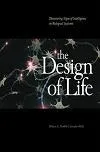
The Design of Life: Discovering Signs of Intelligence In Biological Systems
By: Dembski, William A. and Jonathan Wells | Publisher: Foundation for Thought and Ethics
Design of Life is an ideal resource for both newcomers and experts in intelligent design (ID). For beginners, it provides clear and well-illustrated explanations of ID's foundational scientific concepts, including irreducible complexity and specified complexity. The book also breaks down more intricate topics, such as the "irreducible core" and the detection of specified complexity in the groundbreaking research of Douglas Axe, who demonstrated the astronomically low odds (less than one in 10^64) of obtaining a functional β-lactamase domain through random mutation.
For seasoned ID enthusiasts, Design of Life delves into advanced discussions on key issues. These include a detailed examination of the integrated, unevolvable complexity of the giraffe's neck, a robust critique of the purported transition from reptiles to mammals, and a thorough analysis of the evidence for the evolution of whales from land mammals. The book's General Notes offer in-depth insights that challenge Darwinist perspectives, making it an indispensable addition to any ID advocate’s library.

Explore Evolution: The Arguments For and Against Neo-Darwinism
By: Meyer, Stephen C., Scott Minnich, Jonathan Moneymaker, Paul A.Nelson, Ralph Seelke | Publisher: Hill House
Explore Evolution is a supplementary biology textbook designed to foster critical thinking by providing students with a balanced understanding of the strengths and weaknesses of Darwinian evolution. Initially created for public schools, it is also widely used in private schools. The textbook is tailored for high school and early college students and is supported by a comprehensive suite of teaching resources. These include lesson plans, PowerPoint slides, handouts, and a test bank, making it an ideal choice for educators looking to integrate critical analysis of evolutionary theory into their curriculum.

The Edge of Evolution: The Search for the Limits of Darwinism
By: Behe, Michael J. | Publisher: Free Press
In his sequel to Darwin's Black Box, Michael Behe refines his argument for intelligent design by exploring the "edge of evolution." He proposes that Darwinian processes can explain some biological changes but have limits in generating complex information. This boundary underscores intelligent design as a more plausible explanation for intricate biological systems. Behe's research challenges the sufficiency of Darwinian mechanisms in accounting for life’s complexity.
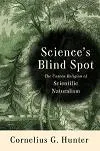
Science’s Blind Spot: The Unseen Religion of Scientific Naturalism
By: Hunter, Cornelius G. | Publisher: Brazos Press
In law, a seller of a defective and unreasonably dangerous product can be held strictly liable for injuries caused. To win such a case, the plaintiff may argue a design defect, asserting flaws in the product’s blueprint. Expert witnesses often evaluate the defect to determine liability.
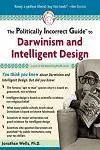
The Politically Incorrect Guide to Darwinism and Intelligent Design
By: Wells, Jonathan | Publisher: Regnery (2006)
Jonathan Wells’ book offers engaging anecdotes and a candid take on the debate between Darwinism and intelligent design. As a biologist and Senior Fellow at the Discovery Institute, Wells provides insight into the challenges faced by proponents of intelligent design, including persecution in academia. Chapters highlight compelling cases and controversies, blending scientific discussion with personal narratives. This book appeals to those seeking both scientific depth and an accessible, engaging writing style.
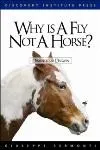
Why is a Fly Not a Horse?
By: Sermonti, Giuseppe | Publisher: Discovery Institute Press
In Why Is a Fly Not a Horse?, Giuseppe Sermonti critiques evolutionary theory, arguing it operates more as a "paradigm" than a definitive explanation. He highlights the reliance on assumptions like universal common descent, which lack detailed justification. Sermonti challenges the naturalistic framework's capacity to explain biological complexity, encouraging deeper inquiry beyond conventional evolutionary narratives.

Agents Under Fire: Materialism and the Rationality of Science
By: Menuge, Angus | Publisher: Rowman & Littlefield
In Agents Under Fire, philosopher Angus Menuge defends the concept of intelligent agency and intentionality against reductionist Darwinian psychology. With support from a Discovery Institute research grant, Menuge critiques the portrayal of the mind as fragmented and purely mechanistic, arguing instead for a holistic understanding of selfhood. His work challenges the naturalistic assumptions of evolutionary psychology, aiming to preserve traditional notions of human intentionality and identity.
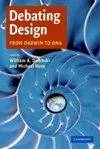
Debating Design: From Darwin to DNA
By: Dembski, William A. and Ruse, Michael |Edited By: William A. Dembski and Michael Ruse | Publisher: Cambridge University Press
This Cambridge University Press volume, co-edited by William Dembski and Michael Ruse, offers diverse scholarly perspectives on the intelligent design debate. It provides a balanced exploration of biological origins, featuring essays from proponents of Darwinism, self-organization, and intelligent design. This makes it an excellent resource for those seeking a comprehensive understanding of the subject, particularly for discussions on incorporating varied approaches into educational curricula.
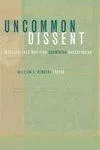
Uncommon Dissent: Intellectuals who find Darwinism Unconvincing
By: Dembski, William A. |Edited By: William A. Dembski | Publisher: ISI Books
This volume highlights the growing critique of Darwinism by leading intellectuals with diverse perspectives. While their religious views vary, they share the belief that Darwinism falls short of explaining life's complexity. Senior Discovery Institute Fellow William Dembski opens with a compelling account of how Darwinists have perpetuated the notion of having decisively won this debate, challenging this claim with insights from the wider discussion. This collection serves as a significant contribution to the ongoing examination of evolutionary theory.
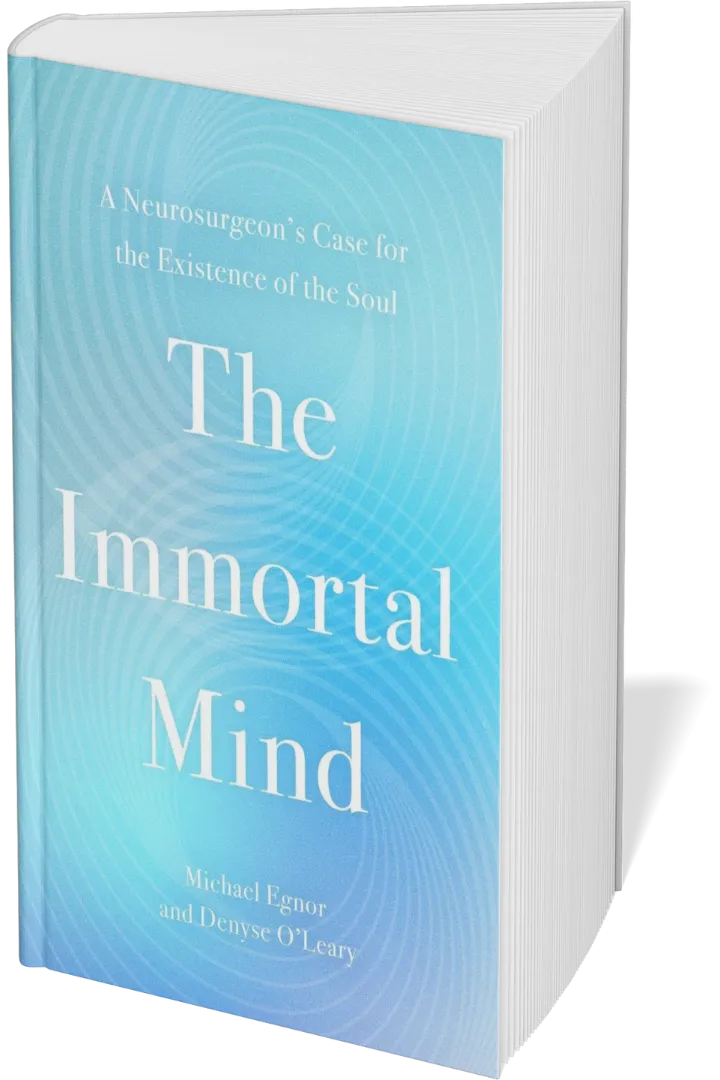
The Immortal Mind: A Neurosurgeon’s Case for the Existence of the Soul
By: Michael Egnor and Denyse O’Leary | Publisher: Ignatius Press
In The Immortal Mind, neurosurgeon Michael Egnor explores the profound connection between science, philosophy, and spirituality. Drawing on neuroscience, physics, and metaphysics, he argues that human consciousness cannot be fully explained by brain activity alone and presents compelling evidence for the existence of the soul and an afterlife.

God: The Science, The Evidence – The Dawn of a Revolution
By: Michel-Yves Bolloré and Olivier Bonnassies | Publisher: Editions Guy Trédaniel
This international bestseller brings together discoveries from cosmology, physics, and biology to show how recent scientific evidence points toward a Creator. God: The Science, The Evidence challenges atheistic perspectives by exploring the fine-tuning of the universe, the origin of life, and the limits of materialism in explaining existence.
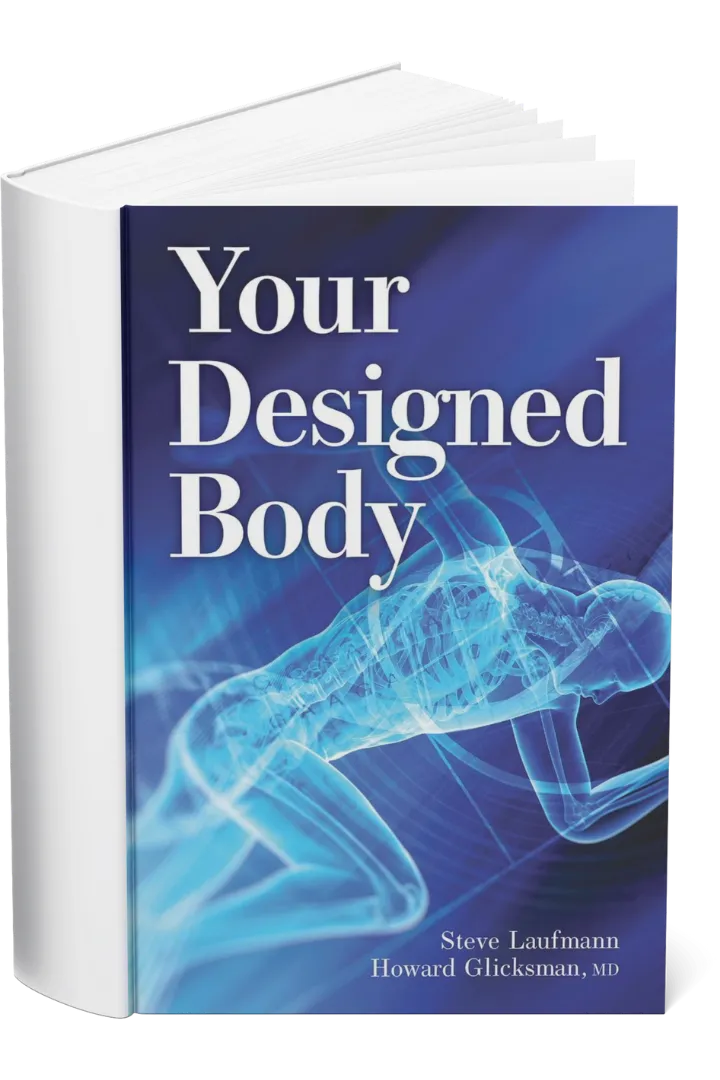
Your Designed Body
By: Steve Laufmann and Howard Glicksman, MD | Publisher: Discovery Institute Press
Your Designed Body uncovers the remarkable complexity and precision of the human body, showing how its systems are purposefully designed to sustain life. Laufmann and Glicksman use insights from biology, medicine, and engineering to argue that life’s intricate design cannot be the result of random evolution but rather intentional creation.

